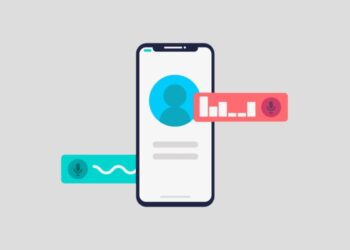The marketing landscape is changing and digital marketing is the new norm. Fortunately, it’s easier than ever before to market your business online and reach a global audience. One of the most important aspects of marketing your business online is the security and protection of your digital marketing campaign – from your website to emails and social media. It’s important to make sure you’re not neglecting the importance of cybersecurity if you really want to protect yourself and your customers’ privacy and data.
1. Backup data regularly
Data loss is a major concern for businesses. Without it, you are running the risk of losing all of the digital assets and digital marketing ideas you gathered since day one. To prevent a catastrophe, make sure you have backups of the important data on your system. Ensure regular backups of your data on a remote backup drive so you can always access it and resume operations in case of hardware damage, human error, cyber attack, or ransomware.
Cloud-based backup is one of the most convenient ways to protect your data. They are more convenient than hardware backups because they don’t require any storage on your end. Cloud-based backup has many advantages that make it popular among professionals and businesses such as cheaper cost, accessibility, and an additional layer of security.
2. Have strong password and security plugins
Blog posts can help companies advertise their products and services to a large audience. One Content Management System (CMS) is WordPress which helps to upload and edit new content. However, hackers are becoming more familiar with WordPress operations and flaws. Vulnerabilities to the site can be used to distribute malware to web visitors which can create problems and put them at risk but also cause a lot of damage to your business’s reputation.
To avoid this it’s important to have a strong password for logging in. It’s also worth checking the default login URL provided on WordPress, making sure it ends with wp-admin. Avoid accessing your CMS from public Wi-Fi networks that are unsecured. The traffic or data you send and receive on unsecured networks is not encrypted. This means that any cybercriminal can easily acquire your password and compromise your website.
3. Protect your email
One of the most common hacker tactics is to hijack one of your email accounts and use it to send spam, including fraudulent or virus-infected emails. Hackers want to take over your site’s email account so that they can send mass emails with malware or phishing scams to all the people in your contacts list. Your site could be black-listed and blocked by many servers as a result, which can also happen to prevent your email campaigns and digital marketing strategies from being delivered.
The worst thing is, you may find that consumers are reluctant to do business with you once they find out about the problem, even if it is fixed. Make sure that the software you use to manage your email includes monitoring and security for all of your messages. You can also set up outbound filters to guard against emails containing certain phrases and even hidden malware. It would be helpful if employees will be trained on spotting email issues and keeping safe acts in their communications. Network security auditing should also include your email system.
4. Secure social media accounts
There are billions of people on social media right now and it’s a crucial marketing tool. Platforms like Facebook, YouTube, Instagram, and Twitter have users across all age groups. But with this great exposure also comes the potential for concerns and risks. Hackers love to target both popular social media accounts and ones of ordinary users. Hijacking social media accounts allows hackers to cause more harm by leaking customer’s private information and staging deceptive fraudulent campaigns.
Cybercriminals can also take over your account with nothing but stolen usernames and passwords. When this happens, the attacker can post offensive content on your profile. Marketing teams can face a higher risk of getting hacked by cybercriminals because they usually share one social media account. To protect login credentials, employ a social media management tool or a password manager.
It is therefore vital to educate and keep your marketing team up to date about the various ways businesses can be targeted by hackers and social media scammers. Just like how emails are used, social media sites like Facebook, Instagram, YouTube also need to be looked at with caution as these can lead people to share access information.
5. Use Virtual Private Network (VPN)
If you worry about hackers stealing your sensitive information, VPN provides a secure connection and encrypts all of the data you send over the internet. When using email marketing or social media, it’s important to make sure that your connection is safe. A VPN is a secure, encrypted tunnel that allows you to send scrambled data to a remote server.
The Virtual Private Network scrambles the message’s ID and source which thus makes it tough for anyone including your Internet Service Provider (ISP) to find out where the data came from. Sometimes VPNs have a firewall that prevents undesirable content from being delivered to your devices such as malware websites, ads, and other trackers that may try to reach your system.


































































































































































































